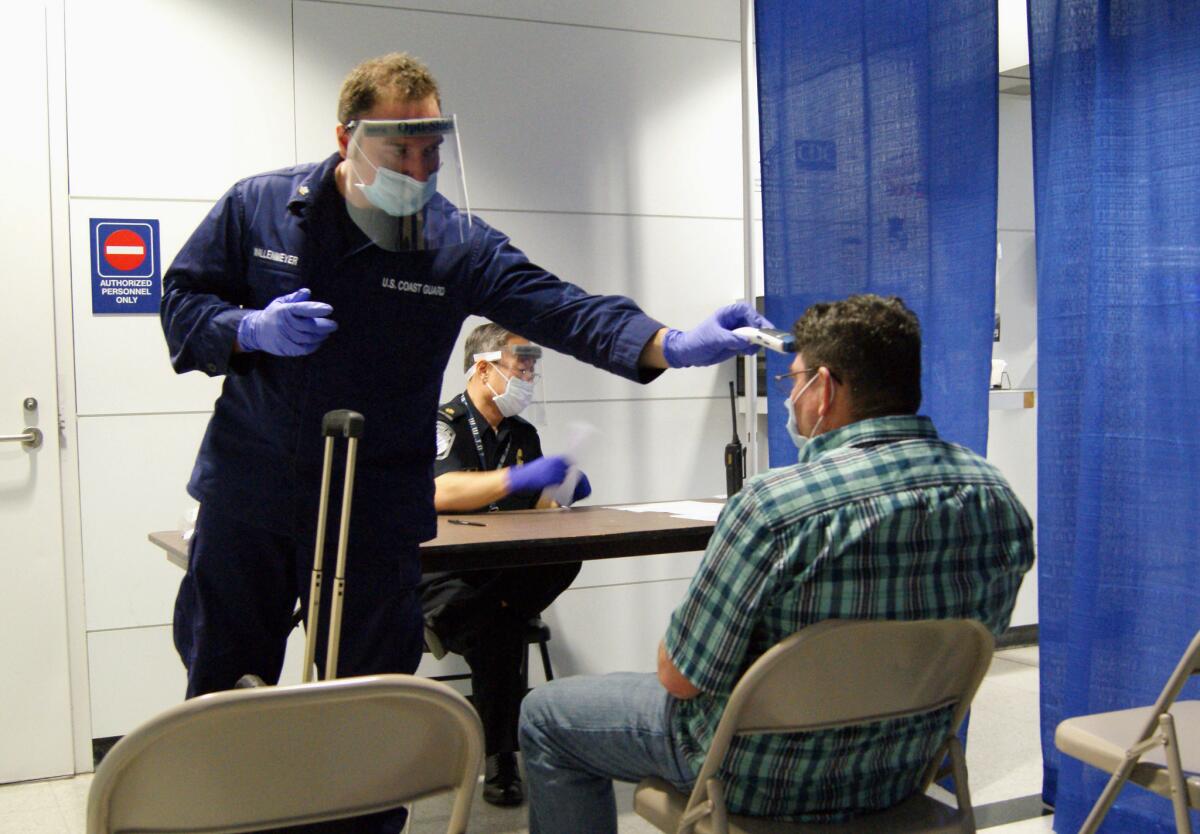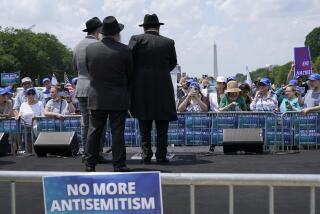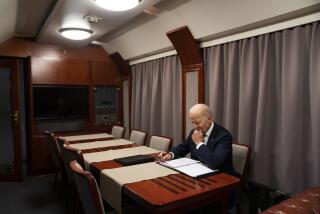Public concerns about Ebola increase faster than cases

- Share via
Reporting from Washington — Public concerns about Ebola have grown much faster than the actual number of cases of the illness in the U.S.
A Pew Research Center survey released Tuesday found that 41% of Americans said they worried that they or someone in their families would be “exposed” to the Ebola virus, up from 32% two weeks ago.
The survey also showed that while a majority of Americans express some confidence that the government can “prevent a major outbreak” of the virus in the country and that U.S. hospitals can “diagnose and isolate” cases, fewer than 1 in 5 say they have a “great deal” of confidence.
Separately, a Gallup Poll released Tuesday found a decline in Americans’ confidence in the “federal government’s ability to handle Ebola,” from 60% expressing confidence a week ago to 52% now.
The Gallup survey, which asked whether people were worried that they or someone in their family would “get Ebola,” found considerably less concern than did Pew’s question about exposure to the virus. About one-quarter of Americans said they thought it was at least “somewhat likely” that they or someone in their family would get Ebola, a level of concern that public health authorities say is far out of proportion to the risk.
Still, only 10% of those Gallup surveyed said they expected a “major outbreak” of the disease in the U.S., while about two-thirds said they expected a “minor outbreak” and 10% said they did not think the disease would spread at all.
Restricting travel to the U.S. by people from the countries at the center of the epidemic – Liberia, Sierra Leone and Guinea -- has overwhelming public support. Many politicians, particularly Republicans, have advocated a ban on entry, which most public health experts oppose.
A Washington Post/ABC News poll released Sunday found that by more than 2 to 1, Americans supported “restricting entry to the United States by people who have been in affected countries.” Ninety-one percent of Americans supported “stricter screening” of people from those countries.
On Tuesday, the Obama administration announced some new restrictions on entry to the U.S. by people from the three West African countries.
The virus’ spread in the U.S. has attracted the attention even of Americans who normally pay little attention to news. Almost everyone surveyed by Pew, 98%, said they had heard about the current outbreak, with 49% saying they were tracking the news “very closely.”
In comparison, only 16% reported paying very close attention to the midterm election, and 29% said they were closely following news about the U.S. military action against Islamic State militants in Iraq and Syria.
As is often the case, political partisanship has colored people’s concerns about the news.
Two weeks ago, very little partisan gap existed on Ebola, but that has changed as concern has grown. In both the Pew and Gallup surveys, Republicans were significantly more likely to say they worry about the virus than Democrats. About half of Republicans said in the Pew survey that they were “somewhat” or “very” worried compared with just over a third of Democrats.
The reverse was true during the George W. Bush administration, when Democrats were more worried than Republicans about an outbreak of avian flu. Such responses reflect a common judgment by political partisans that their party will manage government more effectively than the other party, according to political scientists who have studied the pattern.
More to Read
Sign up for Essential California
The most important California stories and recommendations in your inbox every morning.
You may occasionally receive promotional content from the Los Angeles Times.











